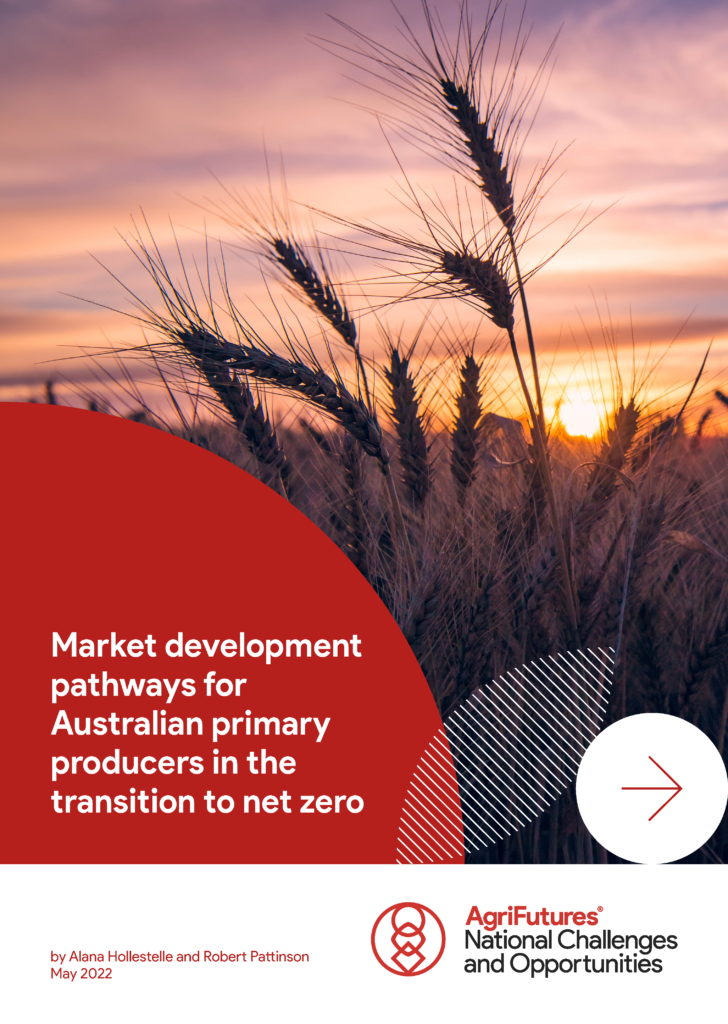The transition to net zero in the Australian economy is underway and will inevitably require action from agriculture. Following the 2016 Paris Agreement, a consensus has emerged – the global economy must dramatically reduce emissions and reach net zero or net negative emissions by 2050. Many governments and major corporations with significant influence on global value chains are committing to increasingly ambitious pledges to cut emissions. Many of these pledges extend beyond their own operations, requiring emissions reductions all the way along their value chains.
Agriculture is a crucial sector in mitigating greenhouse gas emissions for two reasons. Agriculture is a significant source of greenhouse gas emissions and accounts for about 15% of Australia’s total emissions. Secondly, it is unique among industry sectors as it can deliver on both carbon abatement (reduction) and carbon sequestration (storage). Well-managed farm systems can directly mitigate greenhouse gas emissions and can remove carbon from the atmosphere and store it in soils and biomass, such as trees on farm. Farmers will be exposed to commercial opportunities and risks as the net zero transition accelerates.
The five key findings from this research were that consumers will be empowered to lower their emissions; customers want low-emissions suppliers; emissions will shape trade patterns; financiers will require emissions reduction; and land use is under increasing scrutiny for lowered emissions. Agriculture will need to adopt practices and technologies needed to mitigate emissions, and deploy such technologies rapidly and at scale to meet the deep emissions cuts demanded.
Policymakers, industry bodies, value chain actors and financiers each have measures they can use to accelerate the technological and commercial maturity of solutions. Coordinated support is needed to enable producer adoption, which is key to unlocking deep emissions reductions and increasing agriculture’s carbon sequestration capacity.
Both producers and their partners along the value chain are facing similar pressures as the net zero transition accelerates. Agrifood value chain participants have an opportunity in their mutual interest to collaborate with producers on net emissions reduction and generating shared value. Aligning incentives to reduce net emissions and working closely with producers towards net zero will support agrifood value chain actors to reduce their carbon risk, limit offset purchasing exposure, serve emerging consumer preferences and meet net zero targets.





